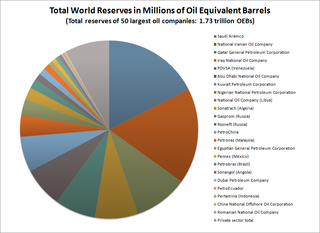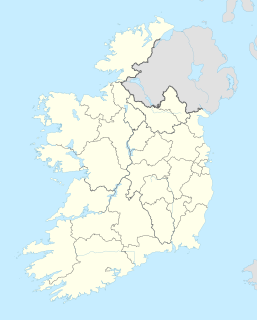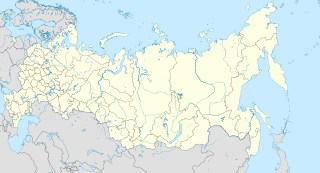| Formation | 1991 |
|---|---|
| Type | NGO |
| Purpose | Accident response |
| Headquarters | Geelong, Victoria |
Region served | Australian territorial water and parts of Indonesian and Papua New Guinean waters |
Parent organisation | Australian Institute of Petroleum |
| Website | www |
The Australian Marine Oil Spill Centre (AMOSC) is an organisation set up by the petroleum industry to enable a quick and effective response to oil spills around the Australian coastline. The organisation is owned by the Australian Institute of Petroleum and is financed by nine participating oil companies and other industry-related companies. [1]

The petroleum industry, also known as the oil industry or the oil patch, includes the global processes of exploration, extraction, refining, transporting, and marketing of petroleum products. The largest volume products of the industry are fuel oil and gasoline (petrol). Petroleum (oil) is also the raw material for many chemical products, including pharmaceuticals, solvents, fertilizers, pesticides, synthetic fragrances, and plastics. The extreme monetary value of oil and its products has led to it being known as "black gold". The industry is usually divided into three major components: upstream, midstream, and downstream.

An oil spill is the release of a liquid petroleum hydrocarbon into the environment, especially the marine ecosystem, due to human activity, and is a form of pollution. The term is usually given to marine oil spills, where oil is released into the ocean or coastal waters, but spills may also occur on land. Oil spills may be due to releases of crude oil from tankers, offshore platforms, drilling rigs and wells, as well as spills of refined petroleum products and their by-products, heavier fuels used by large ships such as bunker fuel, or the spill of any oily refuse or waste oil.
The Australian Institute of Petroleum (AIP) is a representative body for Australia's petroleum industry. Its headquarters a located in Canberra and it was established in 1976. The body is managed by a board composed of chief executives, senior representatives and an Executive Director.
Contents
It was established in 1991 [2] and the following year moved its base to Geelong, Victoria. Its establishment was a direct result of a review conducted by the Australian oil industry following the Exxon Valdez oil spill.

Geelong is a port city located on Corio Bay and the Barwon River, in the state of Victoria, Australia. Geelong is 75 kilometres (47 mi) south-west of the state capital, Melbourne. It is the second largest Victorian city, with an estimated urban population of 253,269 as of June 2016. Geelong runs from the plains of Lara in the north to the rolling hills of Waurn Ponds to the south, with Corio Bay to the east and hills to the west. Geelong is the administrative centre for the City of Greater Geelong municipality, which covers urban, rural and coastal areas surrounding the city, including the Bellarine Peninsula.

Victoria is a state in south-eastern Australia. Victoria is Australia's smallest mainland state and its second-most populous state overall, making it the most densely populated state overall. Most of its population lives concentrated in the area surrounding Port Phillip Bay, which includes the metropolitan area of its state capital and largest city, Melbourne, Australia's second-largest city. Victoria is bordered by Bass Strait and Tasmania to the south, New South Wales to the north, the Tasman Sea, to the east, and South Australia to the west.

The Exxon Valdez oil spill occurred in Prince William Sound, Alaska, March 24, 1989, when Exxon Valdez, an oil tanker owned by Exxon Shipping Company, bound for Long Beach, California, struck Prince William Sound's Bligh Reef, 1.5 mi (2.4 km) west of Tatitlek, Alaska, at 12:04 a.m. local time and spilled 10.8 million US gallons (260,000 bbl) of crude oil over the next few days. It is considered to be one of the worst human-caused environmental disasters. The Valdez spill is the second largest in US waters, after the 2010 Deepwater Horizon oil spill, in terms of volume released. Prince William Sound's remote location, accessible only by helicopter, plane, or boat, made government and industry response efforts difficult and severely taxed existing response plans. The region is a habitat for salmon, sea otters, seals and seabirds. The oil, originally extracted at the Prudhoe Bay Oil Field, eventually affected 1,300 miles (2,100 km) of coastline, of which 200 miles (320 km) were heavily or moderately oiled.









